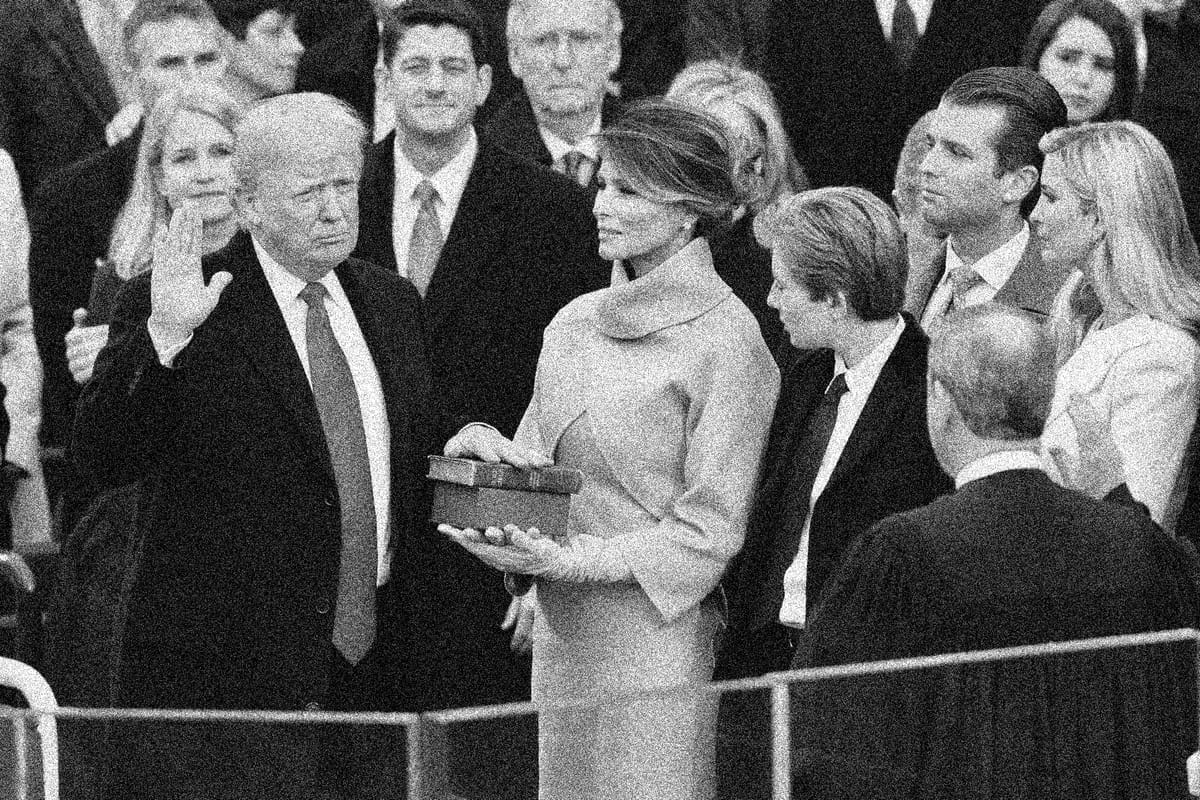The Lesson of Trump, Part II
Trump II should galvanize the sensible Left to focus its energies on how a true labor revitalization can be achieved in the United States.

The basic take on the Left that Harris and the Democrats lost on Tuesday because they did not appeal to the working class in the language of economic populism is correct. No argument from me. But what precisely are we to do with this claim?
2024 was the most expensive presidential election ever. Harris raised even more than Trump. Provided the Democratic machine can still fundraise like this, there is nothing that’s changing it.
So if this claim about economic populism is one made to the Democratic Party and its base, it will not get a true hearing, and it feels like falling into the classic trap of idealism to think otherwise. It’s embarrassing to, say, celebrate the pick of Tim Walz as VP over Josh Shapiro because it is evidence that the Left is not cognizant of what it is and is not capable of affecting. Making the claim that the Democrats lose when they don’t hammer on economic populist chords might fall prey to a similar delusion because a) the Democrats don’t care, and b) we’re not in a position to affect them with arguments even if they did. They have a mean fundraising machine and don’t need to learn a damn thing from this election.
It’s true that there is value in standing firm by certain political commitments even in the face of an intransigent, cash-flush Democratic Party. In times of crisis, people will gravitate to sensible alternatives. But the Left’s brand is so tarnished by ideological confusion that it’s unclear it could be recognized as any more than a mixed bag.
Now there’s another way to take this claim about economic populism, which is that the Left must become a force that makes the Democrats say things they don’t want to say. I know Bernie is probably at a nadir of popularity with the Left right now, but his presidential campaigns were one means of doing this. Kamala Harris once supported Medicare for All!
But the Bernie campaigns also revealed just how far out in front of our skis we were. Most sober observers thought of these campaigns as rather quixotic, and the decisive way in which the Democrats united against him (in a way that the Republicans failed to unite against Trump) confirmed this suspicion. There is still room for credible electoral challenges that scare both parties (see Dan Osborn), but especially at the higher levels of office these will continue to suffer under party machinations.
The main reason those perceptive commentators felt that the Bernie campaigns were doomed ahead of time was that there was no ascendant labor movement complementing them, and to my mind, the only real way the Democrats start talkin’ populism today is if a resurgent labor movement forces them to do so. This does not mean labor support for Democrats, which the Teamsters had understandable reason to buck. It means labor going back to the basics, causing the kind of industrial and political disruption that jolts the Democratic Party out of well-worn grooves. (In theory, the Republican Party could be subject to the same process, but it would involve a much larger institutional transformation.)
We have not seen this kind of display of labor power in some time, and it will require patient seeding of new organizing and the commitment of real resources from the institutional labor movement. It will also require thinking outside of and testing the limits of the National Labor Relations Act (NLRA) regime, which was a huge bottleneck for labor organizing even under Biden and will no doubt be worse under Trump.
There are a lot of horrible things going on in the world right now, and one might question the idea that the cause of labor should be the focus. What about climate organizing? What about anti-war organizing? What about anti-fascism? Whatever one thinks of the movements that support these causes, none have the ability to realign American politics like the labor movement does, and any of their grand aspirations are only going to be potentially realizable in the context of that realignment.
The reckoning with Trump, Part I gave us some good ideas. Trump II should get us to go to the roots of working-class power, galvanizing the sensible Left to focus its energies on how a true labor revitalization can be achieved in the United States.
■
Benjamin Y. Fong has a new project on labor & logistics with Scott Jenkins called On the Seams. He's also the author of Quick Fixes: Drugs in America from Prohibition to the 21st Century Binge (Verso, 2023) and the producer/host of Organize the Unorganized: The Rise of the CIO. You can find his other work at benfong.com.



